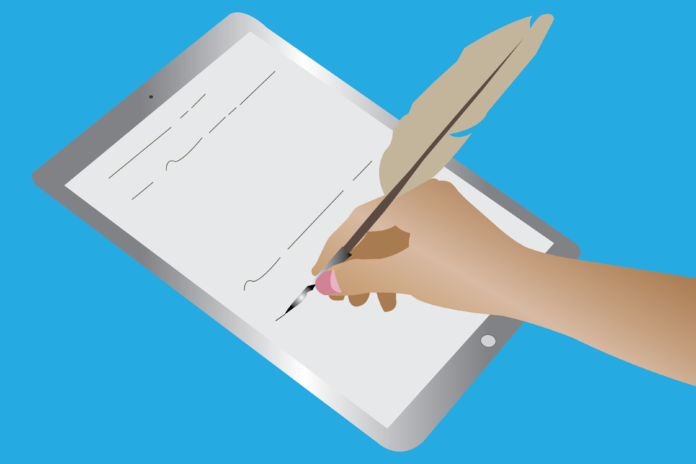Handwritten notes can help cut down on study time
By OWEN RUDERMAN — opruderman@ucdavis.edu
Like many students, I despise studying. I’ve looked up every trick in the book to try to help me stay focused and motivated, but to no avail. I always end up being sucked into the YouTube rabbit hole or doom-scrolling endlessly on my phone. But it turns out that you don’t have to do all of your studying after your lecture, back at your distraction-filled home. Instead, you can fight half the battle right in the classroom. And it starts with taking notes by hand.
I understand the appeal of taking notes on a laptop, trust me. It was so much easier and more convenient to take notes on the computer during the Zoom era of schooling. And it’s so much faster to type than it is to handwrite notes (at least for me). Also, I can easily access Canvas or my files if I have my laptop with me, and I can easily search the notes that I’ve written for key words or phrases.
But the thing is, writing notes on a laptop is a dangerous game. It’s so much easier to be distracted when you’re taking notes on a laptop. I can play a game or watch a video in class instead of taking notes, just like I do at home when I should be studying. And because it’s so much easier and faster to type on a laptop, I find myself simply transcribing what the lecturer is saying and copying down what appears on the slides, instead of actually engaging with the material.
This is where handwriting your notes comes into play. According to a 2014 study, students who took notes by hand ended up learning more effectively than those who took notes on their laptop. This research says that taking notes by hand allows students to summarize and organize information in their own words, ensuring a more organic understanding of the material. Because it’s harder to write fast, and because the physical action of writing with your hands requires you to actively condense and summarize, handwriting notes forces you to absorb the information in your own way and compress it into the core concepts.
Of course, taking notes by hand is not an option for all students. And everyone learns differently and has methods for taking notes that work best for them. It’s entirely possible that the best way to take notes for some is on a laptop. The main idea behind the research is that improvements in learning result from engaging more personally and intentionally with the material. For me personally, I’ve found that taking notes by hand has improved my ability to do that.
Since coming back to in-person classes, I’ve personally experienced the benefits of taking notes by hand. I bought notebooks for each of my classes, and forced myself to physically write. I noticed that handwriting notes made it much easier for me to study. I had already begun memorizing and understanding the material during the lecture, instead of having to go back and review notes that I mindlessly transcribed from slides.
I’m not saying you have to rule out all technology when it comes to note-taking, though. In fact, I think there is a better alternative to writing on paper that strikes the perfect balance between writing by hand and using a laptop: tablets. I haven’t seen this discussed anywhere, but it seems like common sense. If it’s the physical act of writing notes by hand that improves learning, then it shouldn’t matter what surface you write the notes on. And it’s always handy to be connected to the internet to bring up any readings or to answer any questions. All you need to do is download a free note-taking app and you’re good to go.
Tablets come with a variety of benefits but can be cost-prohibitive for many students. Cheaper tablets go for around $150, but higher quality tablets like iPads go for anywhere between $500 to $900. And if you want to take handwritten notes on an iPad, an Apple Pencil will cost you another $130. In light of this, UC Davis should implement a tablet loaner program for students, similar to their laptop loaner program in 2020.
Everyone should give physical note-taking a try, especially if they are struggling with comprehension or studying. However, everyone learns differently and for some, the benefits outweigh the costs. It just doesn’t work for me. The core thing to take away here is: handwritten notes or not, engaging thoughtfully with the material is what matters.
Written by: Owen Ruderman — opruderman@ucdavis.edu
Disclaimer: The views and opinions expressed by individual columnists belong to the columnists alone and do not necessarily indicate the views and opinions held by The California Aggie.




